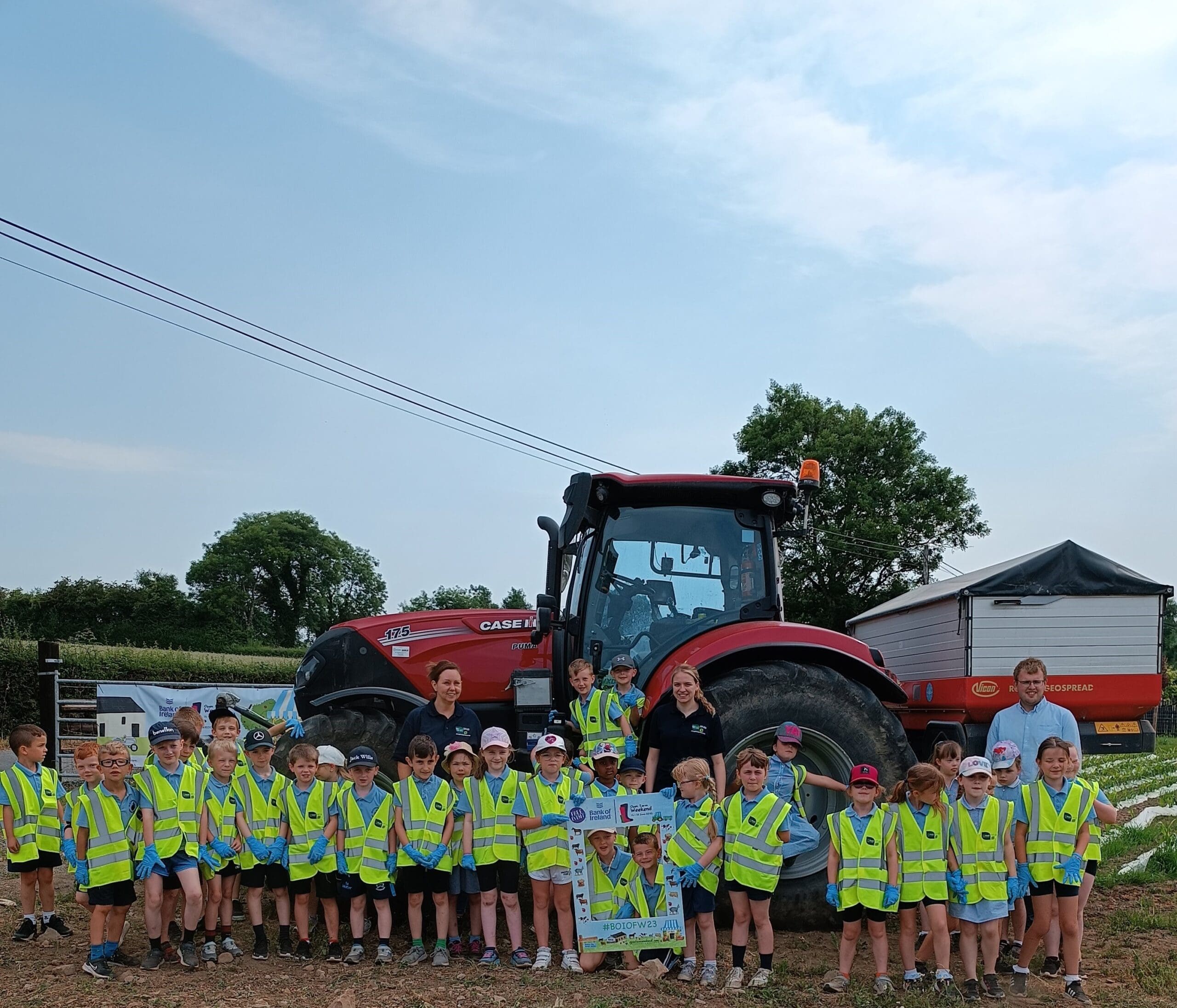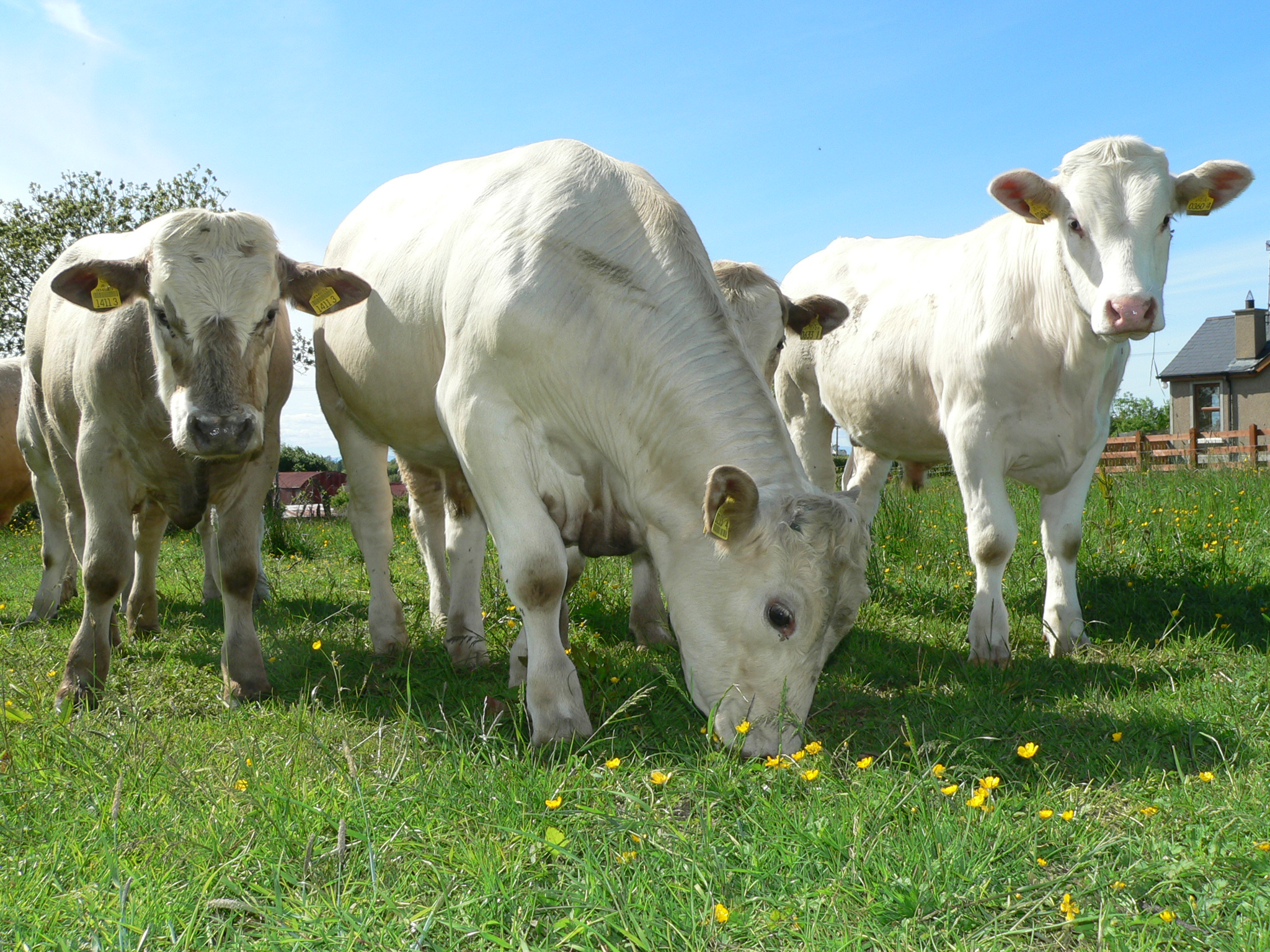
Pupils enjoying a visit during the Bank of Ireland Open Farm Weekend dedicated schools’ day 2023.
Commodity watch by policy and technical graduate student, Daniel McLaughlin
Agri-education
The work of the Ulster Farmers’ Union (UFU) rural affairs committee is broad, but one item on the agenda is agri-education. Promotion of agriculture in Northern Ireland (NI) through education in our schools for the coming generations improves understanding of where our food comes from, as well as the hard work that our local farming families put in to grow and produce high quality nutritious food.
The UFU have recently partnered with educational resources company Twinkl, who design and produce teaching resources for primary school pupils. This partnership has provided a range of agriculturally themed worksheets and activities for young children to compliment lessons on farming and the countryside. These resources will help pupils to engage with and learn about the seasonality of the work and produce involved with farming in NI.
The UFU are also involved with the Bank of Ireland Open Farm Weekend, which connects those from a non-farming background with agriculture and takes children out of the classroom and on to farms, bringing the importance of agri-education into the yard itself.
NI is a net exporter of food, producing enough to feed approximately 10 million people, compared to a population of just under two million. Given the scale of farming here and its contribution to the local economy, improved knowledge and better understanding in the early years is imperative to ensure the continued success of our industry.
Rural health
A second key area for the work of the rural affairs committee is on the health and wellbeing of our farming families and rural community. The UFU is a member of the Agri-Rural Health Forum, which brings together several partner organisations to achieve positive health and wellbeing outcomes for those in agricultural and rural settings.
Recently, the Northern Health and Social Care Trust (NHSCT) hosted “spotlight on rural”, a conference bringing together a number of organisations and stakeholder groups with an interest in the health of our rural communities. Despite the countryside being a beautiful place to live, it brings with it a number of challenges.
Within the NHSCT, 42.5% of people live rurally and may encounter longer travel times for accessing healthcare services and longer ambulance response times. Living rurally can also create ‘geographic isolation’, leading to increased levels of loneliness, which can be made worse due to poor transport links.
The conference highlighted the range of initiatives and programmes throughout the Trust to provide access to healthcare and promote wellbeing. Such examples include social farming, which provides therapy and social inclusion through agriculture, district nursing which brings access to healthcare into the home, Farm Family Health Checks at local livestock marts as well as breakfast and supper clubs, and farmer choirs which address isolation and loneliness.
It was noted that although those living in rural areas are healthier than those in urban areas, those from the farming community can be susceptible to poorer health and wellbeing than their peers, with the stresses and social isolation of modern farming compounding this. Comment was made that farmers will put the wellbeing of their livestock and the needs of their farm and crops above their own, which may compromise their own health. One speaker quoted the term “your health is your wealth” and with the most valuable asset on a farm being the farmer and their family, it is so important to put your wellbeing first. Farmers should feel encouraged to book in with their local GP if they have any concerns, or to take advantage of the service that Farm Families Health Checks provides at local markets and shows.




